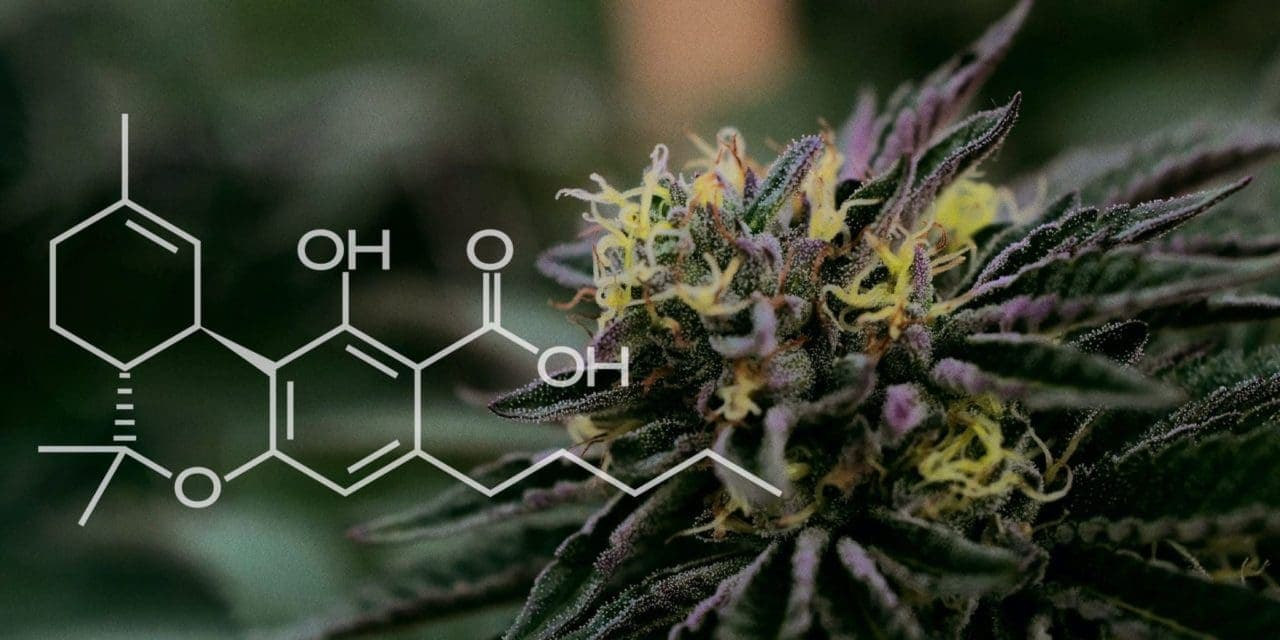What is THCP?

Article written by

April AcernoContent Writer
Content reviewed by

Dr. Mitchell L. DoucetteSenior Director of Research
Tetrahydrocannabiphorol (THCP) is a naturally occurring cannabinoid in cannabis. Research on THCP is limited, but it’s thought to be a powerfully intoxicating cannabinoid that may offer some health benefits.
If you’re interested in trying THCP, it’s important to understand the potential benefits and risks.
What is THCP?
THCP is found in small amounts in the cannabis plant. It was first discovered in 2019, so studies on THCP are limited.
Like other cannabis cannabinoids, including tetrahydrocannabinol (THC) and cannabidiol (CBD), THCP interacts with your body’s endocannabinoid system. This system uses cannabinoids to regulate certain bodily functions, such as:
- Mood
- Pain
- Inflammation
- Sleep
- Cognitive skills like memory, learning, and focus
Like THC, THCP is an intoxicating cannabinoid. While more research is needed, early studies suggest that it may be more potent than THC. This is because THCP is thought to attach more strongly to certain receptors in the brain that are responsible for THC’s intoxicating effects.
Is THCP synthetic?
THCP is naturally found in cannabis, but in trace amounts. This means that all cannabis flower and full-spectrum cannabis products contain small amounts of THCP.
Hemp-derived THCP products, like vaporizers, gummies, and tinctures, are typically made using THCP extracts. These extracts often contain a synthesized form of THCP, which is created by chemically converting CBD into THCP.
The safety of hemp-derived THCP products is unclear. Unlike cannabis products sold in licensed dispensaries, hemp-derived products aren’t regulated for safety and quality. In fact, one study found that hemp-derived THCP products contained significantly different amounts of THCP than what was listed on their labels.
Ultimately, consuming hemp-derived THCP products is not recommended.
Is THCP legal?
THCP’s legality depends on which type of cannabis plant it’s extracted from. Marijuana-derived THCP is federally illegal but may be legal in states that have legalized cannabis use.
Hemp-derived THCP is currently legal at the federal level under the 2018 Farm Bill, which allows use of hemp products that contain a maximum of 0.3% THC.
However, several states have banned intoxicating hemp-derived cannabinoids, including THCP. Also, there are ongoing efforts to restrict or ban intoxicating hemp products at the federal level.
Uses and benefits
Because THCP was only discovered recently, much is still unknown about its effects. So far, no studies have shown that it provides specific health benefits.
That said, THCP and THC have similar chemical structures. As a result, some cannabis researchers are hopeful that THCP may offer some similar effects, such as help with:
Because THCP is reportedly more potent than THC, some researchers believe it may offer stronger health effects. However, more studies are needed to fully understand how THCP works, and how its effects truly compare to those of THC.
Risks and side effects
No studies have been done on the risks and side effects of using THCP. But it may cause side effects similar to THC, such as:
- Dry mouth
- Drowsiness
- Dizziness
- Anxiety
- Paranoia
- Confusion
- Headache
- Nausea
The risk of these side effects may be higher with THCP, as its effects are reportedly stronger than the effects of THC.
Purchasing hemp-derived THCP products may also come with added risks. Unlike cannabis products sold in licensed dispensaries, hemp products are not subject to the same strict safety regulations. This means that some hemp products may contain unsafe additives.
How to use THCP
The safest way to explore THCP is through cannabis products purchased from licensed dispensaries.
Research on the best ways to use THCP for its potential health benefits is currently lacking. But you can still apply these general tips:
- Start low and go slow: To minimize your risk of side effects, start with a low dose of your product. Increase it gradually as needed to achieve the desired results.
- Look at product labels: Check for the cannabinoid content on each product label. This will tell you how much THCP and other cannabinoids are in the product.
- Consult your doctor: Always speak with your doctor before trying a new cannabis product, especially if you’re taking any medication, to avoid potential interactions.
It’s best to avoid hemp-derived THCP products, which may not be made under strict safety standards.
The bottom line: THCP is a minor cannabinoid that may produce very strong effects
There’s still a lot that researchers don’t know about THCP. That said, THCP is an intoxicating cannabinoid that may produce even stronger effects than THC.
While hemp-derived THCP products are widely available, your safest bet is to use cannabis products that are sold in licensed dispensaries. To access safe and legal cannabis products that naturally contain THCP, consider getting your medical cannabis card through Leafwell’s telehealth services.
Get your medical marijuana card
Resources
- Agriculture, Rural Development, Food and Drug Administration, and Related Agencies Appropriations Bill, 2026. https://appropriations.house.gov/sites/evo-subsites/republicans-appropriations.house.gov/files/evo-media-document/fy26-ag-bill-summary-final.pdf
- A novel phytocannabinoid isolated from Cannabis sativa L. with an in vivo cannabimimetic activity higher than Δ9-tetrahydrocannabinol: Δ9-tetrahydrocannabiphorol. https://pmc.ncbi.nlm.nih.gov/articles/PMC6937300/
- Δ9-Tetrahydrocannabiphorol: Identification and quantification in recreational products. https://www.sciencedirect.com/science/article/abs/pii/S246817092400047X
- H.R. 5485. https://www.congress.gov/bill/115th-congress/house-bill/5485
Frequently asked questions
Find out more about THCP with answers to common questions.


